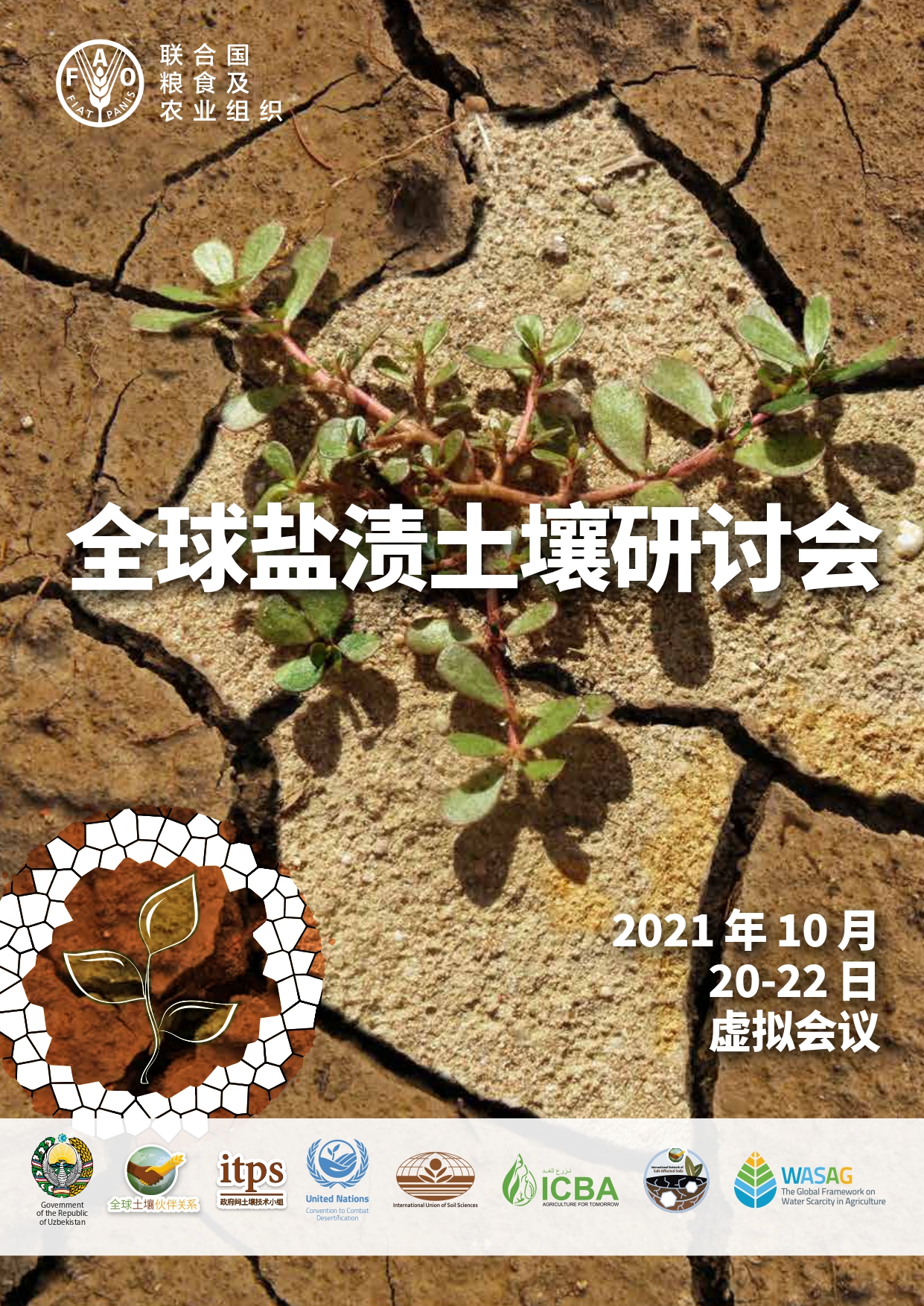一.土壤盐碱化的成因The origin of soil salinization
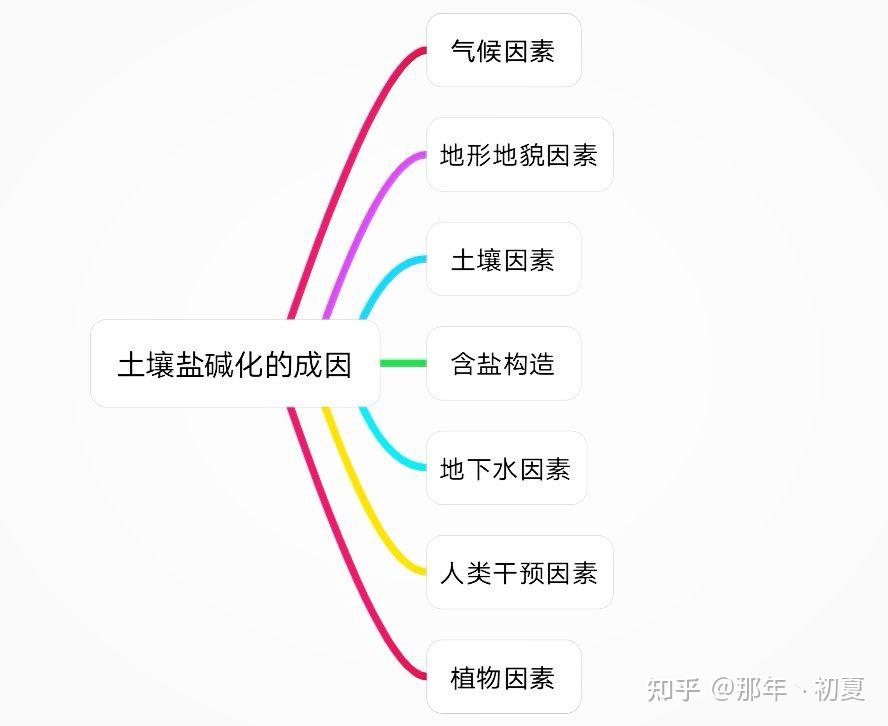
1.气候因素:在我国干旱、半干旱和干燥亚湿润区,就具有降水少、蒸发剧烈的气候条件。区内蒸发量和降水量的比值均大于一,土壤水分的运行方向以上行为主,成土母质中的可溶盐类无法淋滤下移,蒸发作用将地下水中的盐分提上来聚积于表层土壤,同时土壤盐分难以排出,长期累积与浓缩就形成了盐化碱化的土壤。
1.Climate factors: in China's arid, semi-arid and dry subhumid areas, there are climate conditions with less precipitation and violent evaporation. Within the ratio of evaporation and precipitation are greater than one, soil moisture running direction above line is given priority to, into the soluble salt of soil matrix cannot filter down, evaporation to salt in the groundwater accumulation in the surface soil, soil salt at the same time, long-term accumulation and concentration has formed the saline soil.

2.地形地貌因素:就大区地形而言,盐碱土多分布在地势低平的内陆盆地、山间洼地和排水不畅的平原。但从小区地形而言,由于地面水集中于洼地,洼地积水补给坡地的地下水,因而缓坡坡地上的土壤盐渍化常常较重。此外,在微小起伏的地形上,当降雨或灌水时,低处受水多,淋溶作用强;高处受水少,而且蒸发作用强烈,水分由低处向高处不断补给,盐分在高处积聚形成盐斑。而在土壤透水性不良的情况下,含一定盐分的水从高处流向低洼处,由于水分蒸发,盐分便在低洼处积累,使土壤发生盐渍化。
2.Landform factors: In terms of regional topography, saline-alkali soil is mostly distributed in low-lying inland basins, intermountain depressions and plains with poor drainage. However, in terms of the community terrain, because the ground water is concentrated in the depression, the water in the depression supplies the groundwater on the slope, so the soil salinization on the gentle slope is often heavier. In addition, in small relief terrain, when rainfall or irrigation, the low water, strong dissolution effect; high water, and strong evaporation effect, water from the low to high continuous supply, salt accumulation in the high to form salt spots. In the case of poor soil permeability, the water containing a certain salt flows from the height to the low place, and the water evaporation, salt will accumulate in the low place, making the soil salinized.
3.土壤因素:不同土壤质地其表层土壤(0~5m)盐渍化与潜水埋深的关系研究结果表明,在几种不同地下水位情况下,轻壤土的表土积盐量均高于中壤土和重壤土,质地越黏重,土壤盐渍化越轻。再次,土壤有机质有抑盐作用,一般来说,土壤有机质含量越高、其抑制水盐上移的作用越强。研究表明,毛管水在有黏土夹层土壤中的上升速度(任意厚度或层位)比沙质土和黏壤质土低,毛管水在有黏土夹层的土壤中,其上升速度随黏土夹层厚度的增加而减慢;相同厚度时,毛管水上升速度则随黏土层位的升高而减慢。
3.Soil factors: The relationship between the salinization (0~5m) and the surface soil of different soil texture shows that in several different groundwater levels, the surface salt content of light loam is higher than that of medium loam and heavy loam, and the more sticky the texture, the lighter the soil salinization. Thirdly, the soil organic matter has a salt inhibitory effect. Generally speaking, the higher the content of the soil organic matter is, the stronger its effect on inhibiting the upward shift of water and salt is. The study shows that the rising rate of capillary water in sandy soil (any thickness or layer) of clay interlayer soil is lower than sandy soil and slows down with the increase of the thickness of clay interlayer and with the increase of clay layer at the same thickness.
4.含盐构造:含盐地层(有盐类矿物层或含有地下卤水的地层)的存在是在某些背景下土壤盐分的重要来源。由于自然和人为活动的影响,含盐地层中的盐分被释放出来,参与到现代土壤的积盐过程中。
4.Salted structure: The existence of saline strata (with saline mineral layers or strata containing underground halines) is an important source of soil salt in some settings. Due to the influence of natural and anthropogenic activities, the salt content in the salt-bearing strata is released to participate in the salt accumulation process of modern soil.
5.地下水因素:一般来说,地下水埋深越大,潜水补给蒸发量越小,盐分在土壤中积累的数量也就越少。
5.Groundwater factor: Generally speaking, the deeper the groundwater is, the less the evaporation amount of diving recharge is, and the less salt is accumulated in the soil.
6.植物因素:耐盐性极高的植物残体被分解而形成的钙盐和钠盐经雨水淋洗又回到土壤中,使土壤发生盐渍化。植物种类的改变也会影响到土壤盐碱化。如原有的根系发达的植物被一些浅根农作物替代后,更多的雨水下渗后将不是被深根植物吸收,而是补充到地下水,引起地下水位上升。
6.Plant factors: the calcium salt and sodium salt formed by the decomposition of plant residues with extremely high salt tolerance return to the soil by the rain shower and saline the soil. Changes in plant species can also affect soil salinity. If the original plants with developed roots are replaced by some shallow root crops, more rainwater will not be absorbed by the deep root plants, but added to the groundwater, causing the rise of the groundwater level.
7.人类干预因素:①由于发展引水自流灌溉,导致地下水位上升,使地下水和土体中的盐分随土壤毛管水通过地面蒸发耗损而聚于表土。②利用地面或地下矿化水进行灌溉,而又不采取调节土壤水盐运动的措施,导致灌溉水中的盐分积累于耕层中。③耕作粗放,种植和施肥的不合理也会造成土壤返盐积盐。
(人为活动主要通过改变自然条件来影响土壤盐碱化程度)
7.Human intervention factors: ① Due to the development of water diver-sion artesian irrigation, the groundwater level rises, so that the salt of groundwater and soil soil with the loss of soil capillary water through the ground evaporation.② The use of surface or underground mineralized water for irrigation without taking measures to regulate the movement of soil water an-d salt, leading to the accumulation of salt in the irrigation water in the tillage layer.③ Extensive farming, unreasonable planting and fertilization will also cause soil salt accumulation.
(Human activities affect the degree of soil salinization mainly by changing natural conditions)
二.土壤盐碱化的危害The dangers of soil salinity
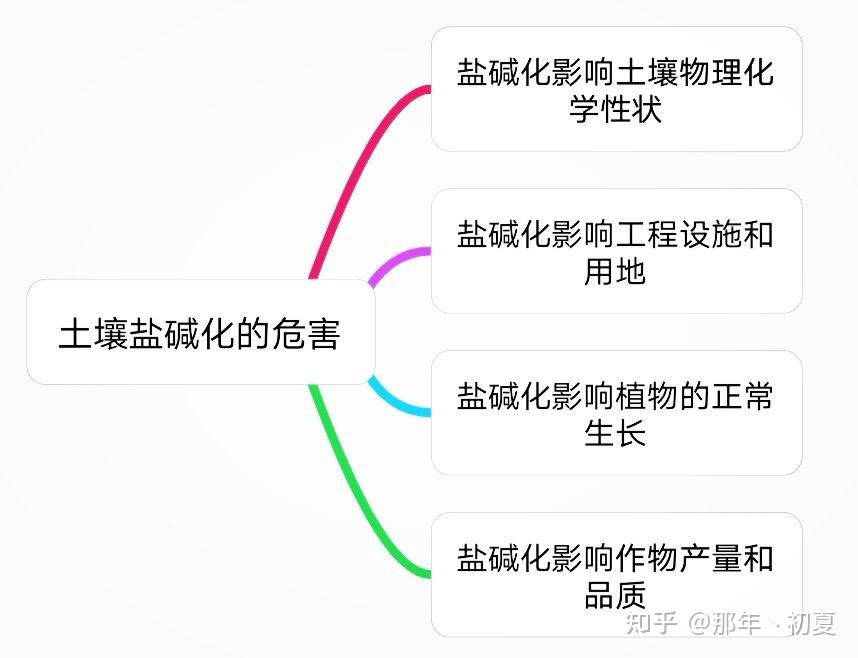
- 盐碱化影响土壤物理化学性状:土壤更容易板结,透水透气性降低,土壤养分利用率、有机质含量和土壤肥力下降。
- 盐碱化影响工程设施和用地:存在土地溶陷、盐胀等现象,加剧对工程设施的腐蚀损坏。
- 盐碱化影响植物的正常生长:植物易干旱枯萎,抑制植物正常的营养生长和繁殖。
- 盐碱化影响作物产量和品质:据研究, 土壤中氯离子含量较高时将使烟草的燃烧性变差,品质下降。土壤中适量的氯离子能促进葡萄产量和品质的提高,而当土壤中的氯离子含量超过一定量时就会使葡萄的产量和品质下降。 1.Salinization affects soil physicochemical properties: soil is easier to harden, water permeability and permeability is reduced, and soil nutrient utilization, organic matter content and soil fertility decrease.
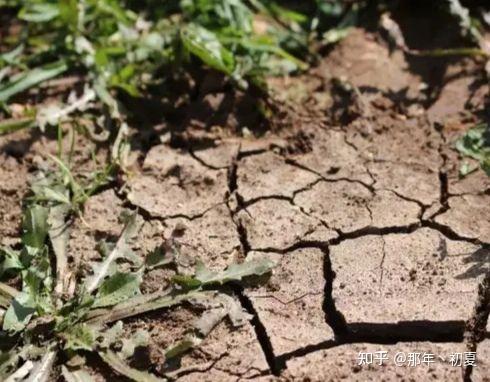
2.Salinization affects engineering facilities and land use: there are land subsidence, salt swelling and other phenomena, which aggravate the corrosion and damage to engineering facilities.
3.Salinization affects the normal growth of plants: plants are prone to drought and wither, inhibiting the normal nutritional growth and reproduction of plants.
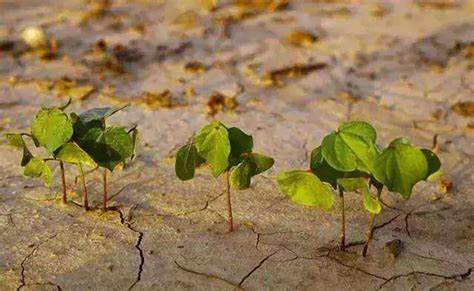
4.Salinization affects crop yield and quality: according to research, the high chloride content in soil will make tobacco combustion worse and the quality worse. The appropriate amount of chloride in soil can promote the improvement of grape yield and quality, and when the content of chloride in soil exceeds a certain amount, the yield and quality of grape will decrease.
三.土壤盐碱化的治理Treatment of soil salinization
- 加强农业管理,尽量合理化种植。
- 可以改良水利,加强灌溉、排水、放淤等的管理。
- 种植耐盐碱的植物,增加土壤中的有机质含量,改善土壤的理化性质。
- 采用化学改良的方法见效相对比较快,但不是长久之计。
- 寻求国际合作,共同治理土地盐碱化。
注:新冠肺炎大流行期间,全球盐渍土壤研讨会(GSAS21)"防止土壤盐渍化,提高土壤生产力"于2021年10月20日至22日以虚拟形式举行。
- Strengthen agricultural management, as far as possible reasonable planting.
- We can improve water conservancy and strengthen the management of irrigation, drainage and silt discharge.
- Plant saline-tolerant plants to increase the organic matter content in the soil and improve the physical and chemical properties of the soil.
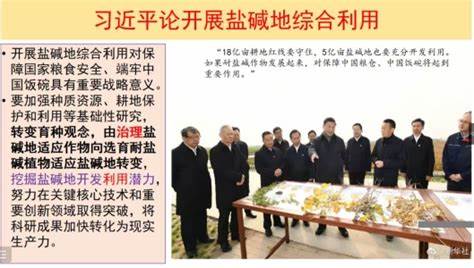
- The use of chemical improvement method is relatively quick, but not a long-term solution.
- Seek international cooperation to jointly manage land salinization.

Note: During the COVID-19 pandemic, the Global Salized Soil Symposium (GSAS21) "Preventing soil salinization and Improving soil productivity" was held in a virtual form from 20 to 22 October 2021.
